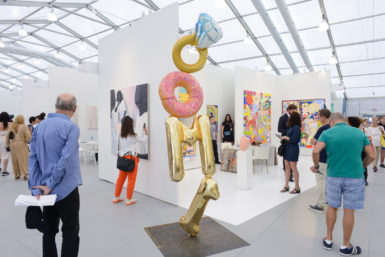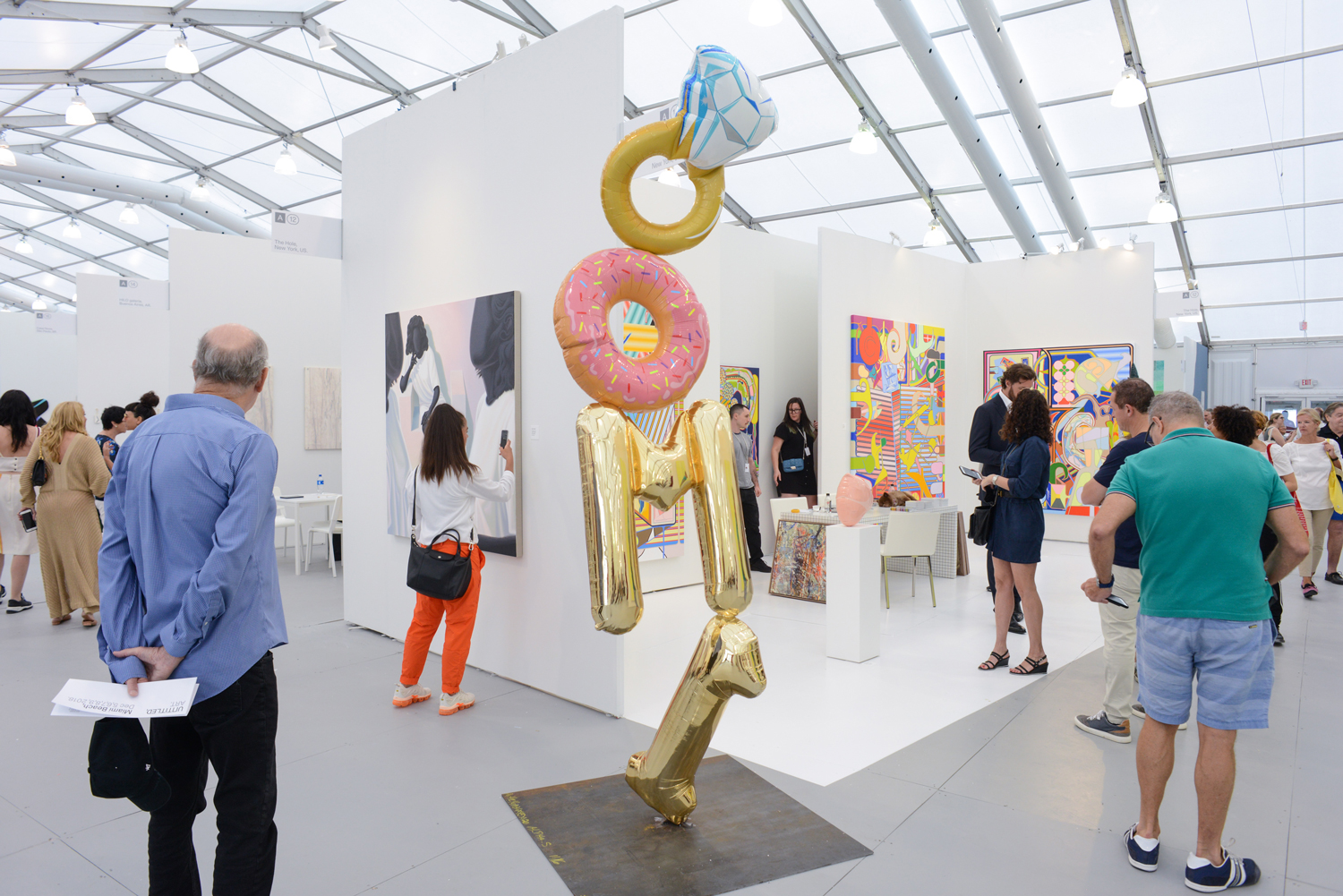[ad_1]

Work by Adam Parker Smith in the booth of Los Angeles’s the Hole.
CASEY KELBAUGH, FOR ARTNEWS
A new UBS Investor Watch Pulse Report detailing a survey of 175 art collectors and high-net-worth individuals—each with at least $5 million in assets—found that 58 percent of subjects surveyed said they were looking to add to their collections in 2019 though nearly as many (57 percent) are uneasy about a lack of transparency in the art market.
The report, titled “Art in Motion,” claims that collectors have become increasingly reliant on the internet when making decisions on what to buy. Some 58 percent of the collectors surveyed said that they bought a work they found online, without ever having seen it in person—a number that more than doubled since last year.
Sales are increasingly made through digital sources, the report states. More than 60 percent of collectors surveyed have participated in an online auction in the past year. And 65 percent said that they felt compelled to “seriously consider buying” art after spotting it on social media.
Karl Ruppert, the market head of Florida private wealth management at UBS, said in a statement, “The technological trends changing the economy are increasingly changing the art market. There are potential opportunities presented through future growth of the online art market to attract new buyers at different price levels, which is beneficial to the health of the overall market. For gallerists, fairs, auction houses, artists and collectors, digital tools will be a key area of growth over the next five years.”
The report issued by UBS, a lead partner of Art Basel, also suggests that, when it comes to buying art, gender matters. Of the survey participants, 57 percent said they consider an artist’s gender when deciding whether to purchase work—with 70 percent saying they expect to acquire art by women in the next year. (The matter of gender was not addressed in last year’s report.)
Along with the market’s lack of transparency, other “top concerns of collectors” cited in the report include the impact of art-related taxes on future generations and methods by which heirs will care for their art. Of the participants queried, 58 percent called their art collection their “most prized possession.”
[ad_2]
Source link

